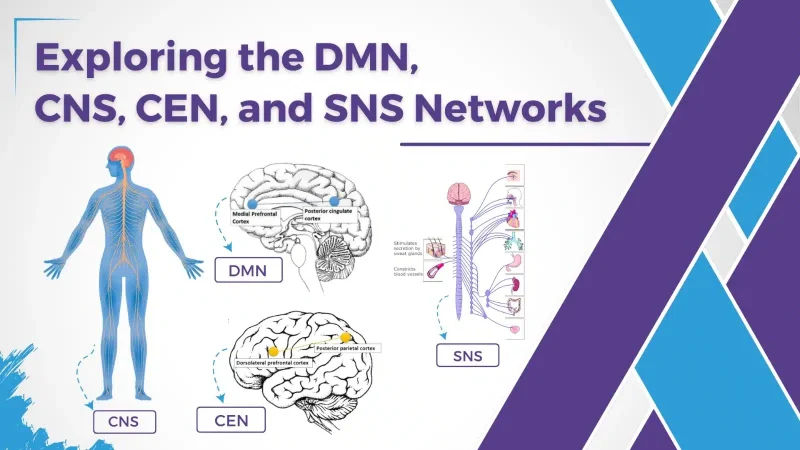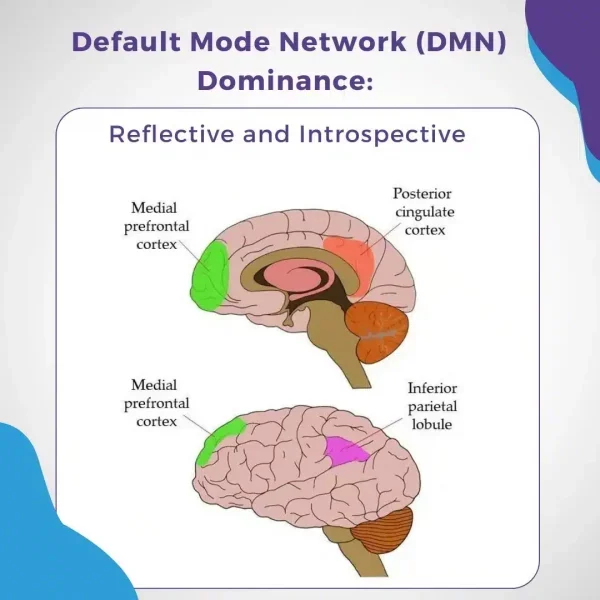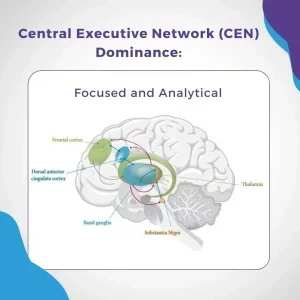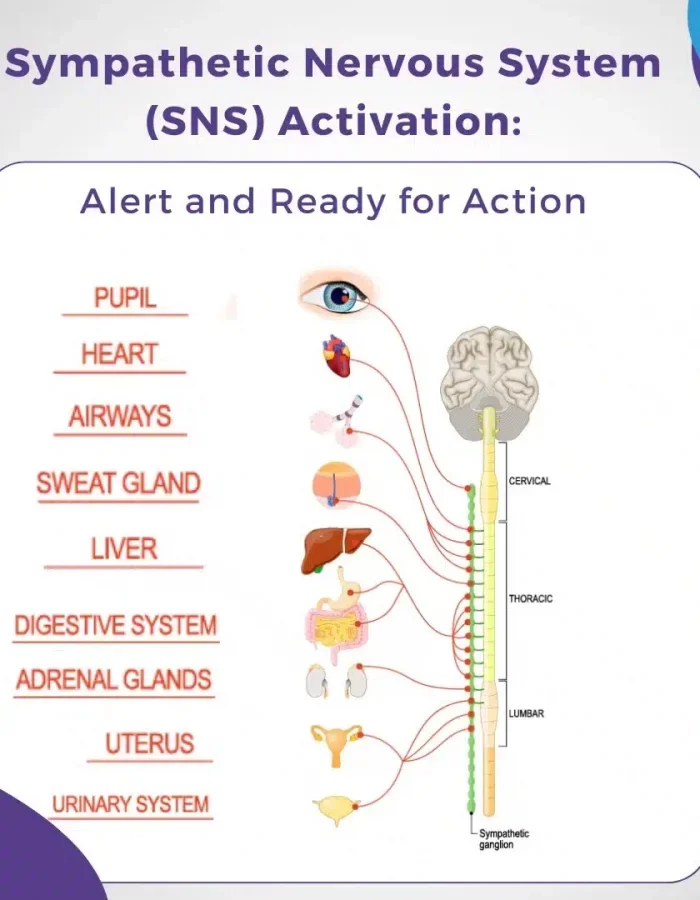Neuphony Research Team | Published on October 5, 2024 | 6 Mins Read

Have you ever wondered what’s happening inside your head when you’re lost in thought, focused on a task, or feeling overwhelmed? It turns out your brain isn’t a solitary worker; it’s a complex network of regions working together to shape your thoughts, emotions, and actions. Let’s explore the world of DMN, CNS, CEN, and SNS networks to understand how they impact your inner workings.
The DMN is active when your mind rests, not focused on the outside. It’s linked to introspection, self-awareness, and thinking about oneself and others. Key regions include the posterior cingulate cortex and medial prefrontal cortex.
Personality Traits: Dominant DMN individuals tend to be introspective, imaginative, and thoughtful. They enjoy deep thinking and ponder life’s big questions.
Coping Mechanism: During stress, they retreat to inner thoughts for solace. Creative activities, journaling, or solitude help process emotions.

The CNS is the core control system of the body, consisting of the brain and spinal cord. The brain manages conscious thoughts, emotions, and basic functions. The spinal cord relays messages, letting you move, feel, and respond.
Personality Traits: Active CNS folks are action-oriented, motivated, and handle challenges. They thrive on goals and control.
Coping Mechanism: In stress, they focus on problem-solving. Physical activities, like exercise, release tension.

The CEN is like your brain’s “CEO.” It handles tasks, decisions, and working memory, involving the frontal and parietal lobes.
Personality Traits: CEN-dominant people are detail-oriented, organized, and excel in focused tasks.
Coping Mechanism: When stressed, they engage in tasks needing attention. Puzzles or strategic games provide control.

The SNS triggers “fight or flight” responses. It increases heart rate, dilates pupils, and sends blood to muscles. It’s connected to regions in the spinal cord and brainstem.
Personality Traits: When SNS is active, individuals become alert, responsive quick thinkers.
Coping Mechanism: During stress, they enter “fight or flight” mode. Techniques like deep breathing aid stress management.
Feeling overwhelmed? Your CNS might be overactive. Activate your DMN to reflect and make conscious decisions. Understanding these networks empowers effective life navigation. Balance is key. Your brain works best when networks collaborate. CNS moves you, DMN guides you, and SNS handles challenges.
Imagine these networks as the wiring in your home – they’re responsible for ensuring everything runs smoothly. Your brain’s networks are like interconnected circuits, each playing a role in shaping your thinking and experience.
Similar to how you might inspect different points in your home for proper electrical grounding, researchers can measure the activity of these brain networks using advanced tools. One such technique is Neuophony, which helps scientists gain insights into the currents of your brain. By using the Neuophony Flex Cap, you can position sensors in various places to capture activities from different networks.
In summary, your brain’s networks orchestrate your personality and actions—a journey of balance, reflection, focus, and connection, all within your amazing mind.